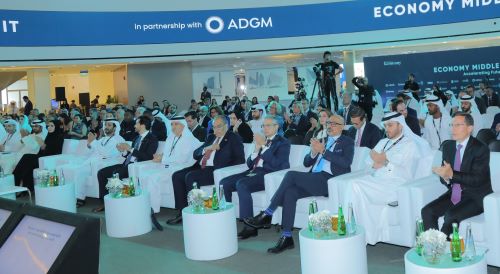Google’s Quantum Leap: A Groundbreaking Advancement in Computing – Andreas Hassellof, CEO of Ombori

Google has unveiled a new quantum computing chip named “Willow,” capable of solving complex calculations in under five minutes—tasks that would take traditional supercomputers an unimaginable 10 septillion years. This breakthrough leverages “exponential error suppression,” enabling quantum computers to scale up while reducing errors and potentially paving the way for practical quantum computing applications.
Impact on Cryptocurrency, Online Privacy, and Banking
The advent of quantum computing could disrupt the current paradigms of security in digital spaces:
- Cryptocurrency: Many cryptocurrencies rely on cryptographic algorithms like RSA or ECC to secure transactions and wallet access. If quantum computers can solve these algorithms efficiently, private keys could be derived from public keys, making current crypto wallets vulnerable.
- Online Secrecy and Banking: A significant portion of online security, including banking transactions, depends on encryption methods that quantum computers could eventually break. This poses risks to personal privacy, financial data security, and even national security if quantum computing outpaces the development of quantum-resistant encryption methods.
Is this fear justified?
While the threat is real, it is not immediate. Here’s why:
- Time Frame: Experts estimate that practical, large-scale quantum computers capable of breaking current cryptographic algorithms are still years, if not decades, away. This provides time for the crypto community to develop and implement quantum-resistant algorithms.
- Ongoing Research: Active efforts are underway to create quantum-resistant cryptography. For instance, the National Institute of Standards and Technology (NIST) is already working on post-quantum cryptographic standards.
- Adaptability of Crypto Systems: Blockchain technologies, including Bitcoin, can theoretically be updated through consensus mechanisms like hard or soft forks to incorporate quantum-resistant cryptography.
In conclusion, while Google’s Willow demonstrates rapid progress in quantum computing, the direct threat to cryptography should be viewed as a long-term concern rather than an immediate crisis. The industry is aware of this potential challenge and is proactively taking steps to ensure resilience against future quantum threats.
Potential Advancements in AI Toward AGI
- Enhanced AI Capabilities: Quantum computing could exponentially accelerate the speed at which AI models learn and process data. This may enable solutions to complex problems in areas like pattern recognition, machine learning optimization, and data analysis—tasks that are currently time-consuming or infeasible with classical computing.
- Steps Toward AGI (Artificial General Intelligence): The computational power of quantum systems could assist in simulating or understanding human cognitive processes more effectively, pushing AI research closer to AGI. AGI would represent machines capable of understanding and performing any intellectual task that a human can, potentially revolutionizing various sectors by creating more autonomous, versatile, and intelligent systems.
- Implications of AGI: Progress toward AGI could drive significant societal changes, including the automation of complex decision-making processes, ethical considerations surrounding AI’s role in society, employment impacts, and the need for new regulatory frameworks.
Last Updated on 4 months by News Desk 1












